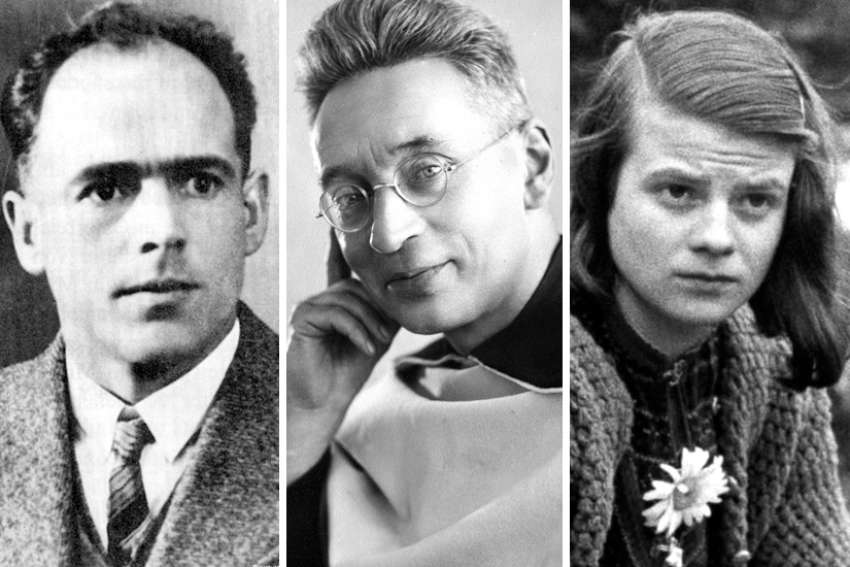At other times it grows slowly like a cancer and in the end nothing is the same, but we only see that in retrospect.
In Canada, many people are living under a type of tyranny while for the great majority it all seems normal. The tyranny is not political or military, but cultural.
The majority sees the suppression of one particular minority as beneficial to advancing its re-definition of Canadian values.
If you are a Christian social conservative you have a declining influence on public policy, even though you are a taxpayer and law-abiding citizen. Neither the Liberal Party of Canada nor the NDP will let you run under their banners.
Even some Conservatives, to quote a leading candidate for the party leadership, find your views a “stinking albatross” around the neck of the party. It hardly needs mentioning but some of those views include abortion with no regulation and an expansion of euthanasia.
It would be easy to despair. But do not. It does no good. Rather, think of this as a time to really get in touch with your Christian faith. To remember we are built on the blood of the martyrs. And to look towards those true Christian heroes for strength.
Hopefully, those examples will create inspiration and then the courage to speak out and act.
These were the people who, facing a type of tyranny never experienced in Canada, took seriously the passage found in Matthew 5:14: “You are the light of the world. A city seated on a mountain cannot be hid.”
Here are just three examples:
Blessed Franz Jägerstätter: He was an Austrian farmer who was drafted into the German army in February 1943. His Catholic faith helped him to see the evils of Nazism. He refused to fight and to take the loyalty oath to Hitler. Before being executed on Aug. 9, 1943 he wrote:
“If I must write ... with my hands in chains, I find that much better than if my will were in chains. Neither prison nor chains nor sentence of death can rob a man of the faith and his free will. God gives so much strength that it is possible to bear any suffering
. … People worry about the obligations of conscience as they concern my wife and children. But I cannot believe that, just because one has a wife and children, a man is free to offend God.”
He later was declared a martyr and beatified. He is the subject of a beautiful 2019 film, A Hidden Life.
Blessed Titus Brandsma: He came from a very devout Dutch family. Three of his sisters became nuns and a brother became a Franciscan priest. Brandsma became a Carmelite priest in 1905, according to the website Saints Resources. The site also notes this about his attitude towards Nazism:
“He saw the Nazi party in Germany as a growing threat, even in Holland, where he lived. Titus warned Catholic newspapers not to print the lies the Nazis were spreading about the Jewish people and other groups. He spoke out against the anti-Jewish laws the Nazis passed in Germany. The Nazis knew about Titus’ actions. The called him that ‘dangerous little friar.’ When Catholic newspapers refused to print Nazi propaganda, the Nazis realized Titus was a true threat.”
In Dachau he suffered beatings and starvation and was finally murdered by poison. He gave his rosary to his executioner.
The White Rose: This remarkable group mostly of young Lutheran students was led by Hans and Sophie Scholl. The pair along with friends began an anti-Nazi campaign that was both clever and simple. They created a series of handbills outlining the Nazi crimes, especially in Eastern Europe.
They would take these flyers to one city and then mail them to people of influence in a third city. This drove the Gestapo crazy as there was no way to figure out the source.
This was in Nazi Germany in wartime. Even buying writing paper, stamps and envelopes was considered suspicious behaviour. Spies were everywhere and many ordinary citizens were all too willing to report anti-German attitudes to the authorities.
Eventually, through a terrible miscalculation, the group was caught, tried and guillotined in one day. Sophie was 21. She was named European Woman of the Century. To know more, see the film Sophie Scholl: The Final Days. It will break your heart but move you towards the light.
(Lewis is a Toronto writer and regular contributor to The Register.)


